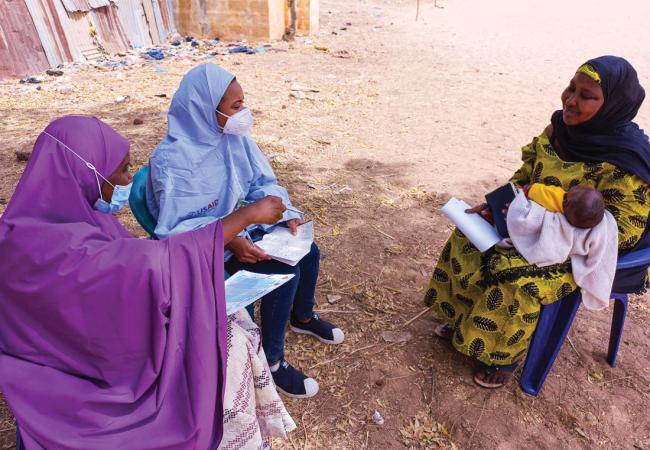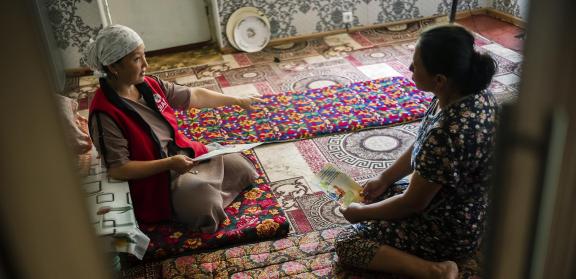
Counseling is an essential service to support and improve maternal, infant, and young child nutrition and child development outcomes.
Counseling is more than education and providing information. Trained providers counsel clients through tailored and interactive discussions to strengthen their knowledge, motivation, skills and/or confidence to adopt and continue positive nutrition and other nurturing care practices. Through counseling, individuals decide for themselves what actions to take.
Clients need to have the agency, resources, time, and support to act on the counseling provided. Counseling is most effective when combined with interventions at the household, community, and societal levels that reinforce positive nutrition and nurturing behaviors and create a supportive environment for clients to act.
Unfortunately, overburdened workforces, insufficient training, lack of materials, poor remuneration/incentives, high staff turnover, and inadequate supervision/monitoring, among other barriers, can limit counselors’ ability to provide quality counseling.
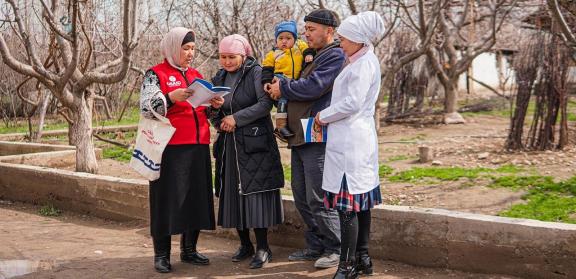
USAID Advancing Nutrition has conducted research and generated materials that highlight ways program designers and implementers can help create a supportive enabling environment for clients to act on counseling guidance.
These resources—
- Share research and guidance on how to understand and respond to social norms that impact maternal, infant, and young child diets and design more effective social and behavior change activities to support improved complementary feeding practices.
- Share guidance to encourage more acknowledgement, support, and measurement of caregiver resources that are likely relevant to providing optimal feeding and nurturing care for young children.
- Share guidance around how to engage family members in maternal, infant, and young child nutrition activities and create a supportive enabling environment for caregivers to act on nutrition counseling.
Counseling Brief Series: Tools and Capacity Strengthening
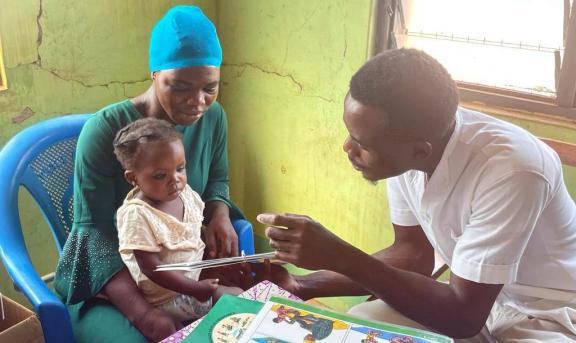
Over the past five years, USAID Advancing Nutrition has undertaken several activities to support the provision of quality counseling for nutrition and other components of nurturing care, and has consolidated learnings from these activities into a two-part brief series that aims to—
- Help address gaps in the global evidence base around how to provide quality counseling.
- Provide insights into how to address barriers to quality counseling for nutrition and nurturing care.
- Inform USAID Missions, implementers, and other stakeholders to more effectively design and support counseling services.
The two-part brief series shares USAID Advancing Nutrition’s experiences designing and implementing various tools and two capacity strengthening approaches—supportive supervision and mentorship to improve nutrition and nurturing care counseling.
Explore Our Work on Counseling
Tools, such as job aids, can address some of the barriers to quality counseling by helping to motivate, remind, and focus information for health workers. Evidence shows that using appropriate job aids, can help health workers successfully provide tailored counseling to clients, addressing their current needs by listening and problem solving with them, not simply educating them. Tools can also help make complex information more accessible, help counselors build trust with clients, and prioritize children for counseling.
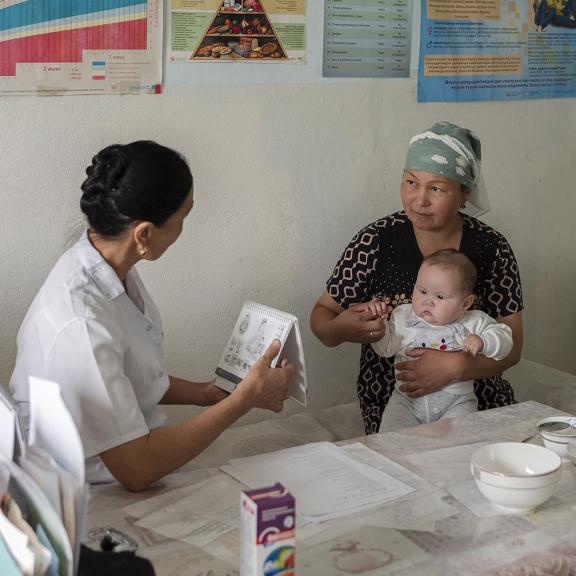
Strengthening Counseling through Improved Tools for Health Workers
This brief shares USAID Advancing Nutrition-supported tools and experiences complementing global and local efforts to reduce barriers; address skill gaps; and improve the delivery of quality nutrition, responsive care, and early learning counseling.
Featured Resources
Additional Resources
Health workers need a solid foundation of technical knowledge and interpersonal skills—including problem solving, empathy, communication, and listening—to provide quality counseling and improve nutrition and child development outcomes. Counselors need continued support throughout their careers to provide quality counseling. Post-training supportive supervision and mentoring are effective approaches to reinforce and strengthen a counselor’s knowledge and skills and play an important role in improving provider and supervisor relationships, motivation, and ultimately service delivery.
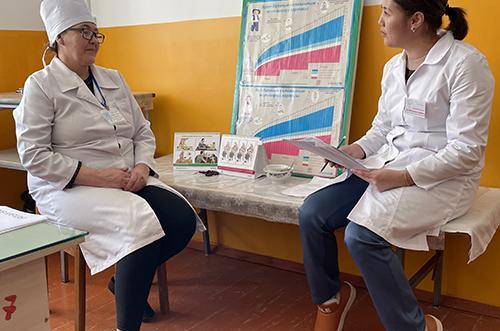
Strengthening Counseling Capacity through Supportive Supervision and Mentorship
Learn more about USAID Advancing Nutrition’s experiences supporting health workers’ provide nutrition and responsive care and early learning counseling through supportive supervision and mentorship activities.

